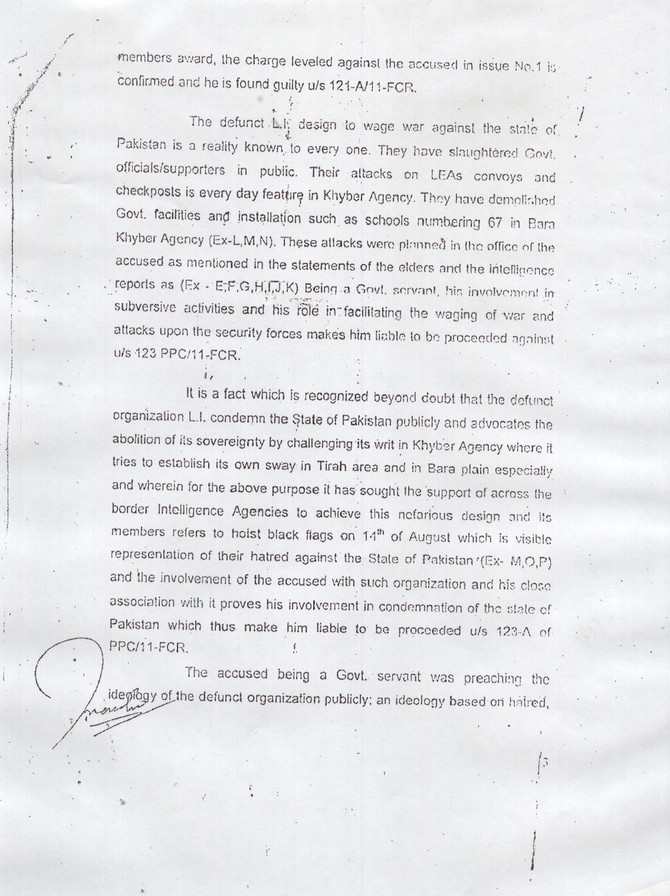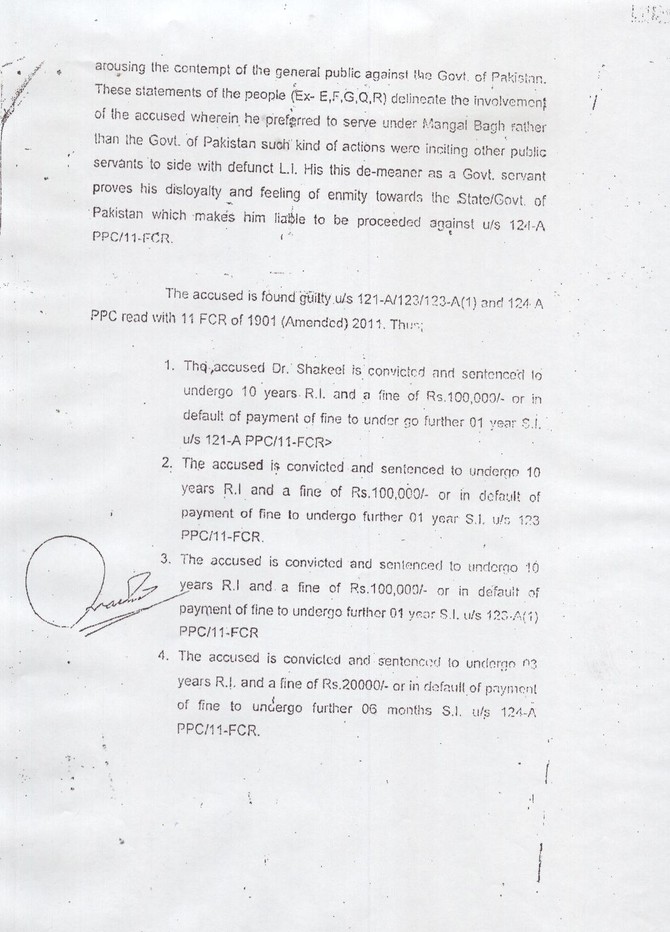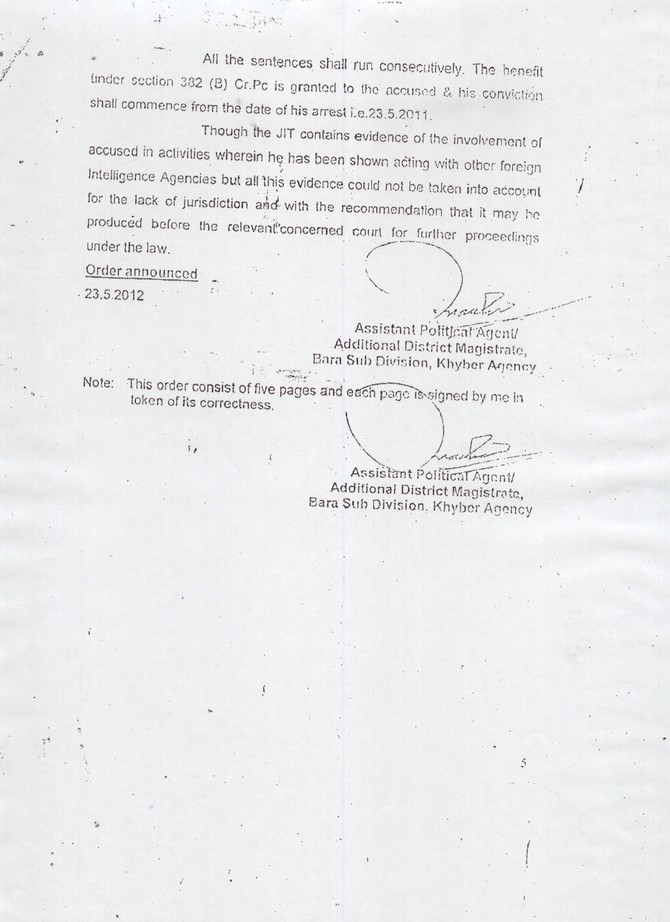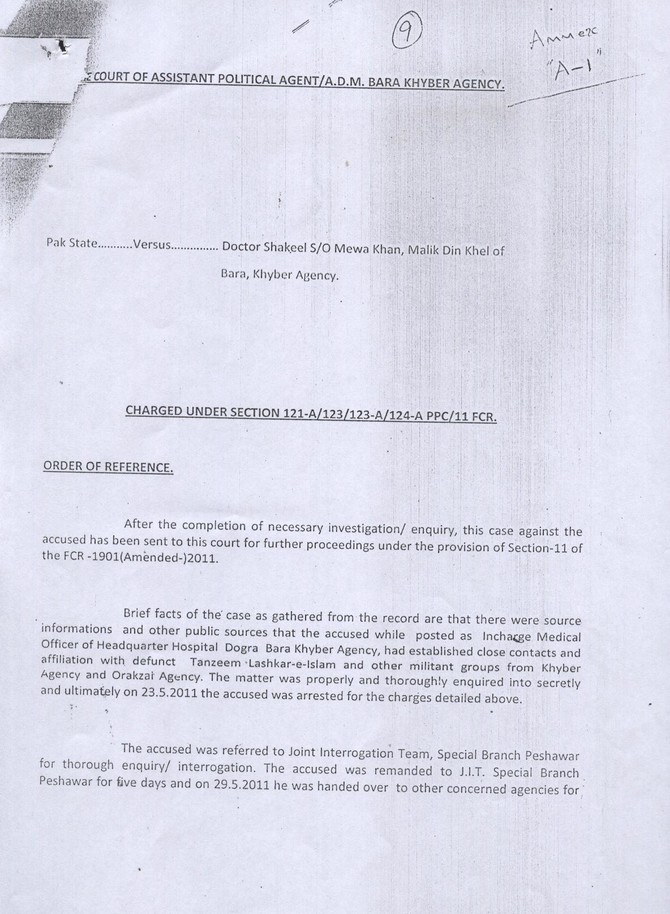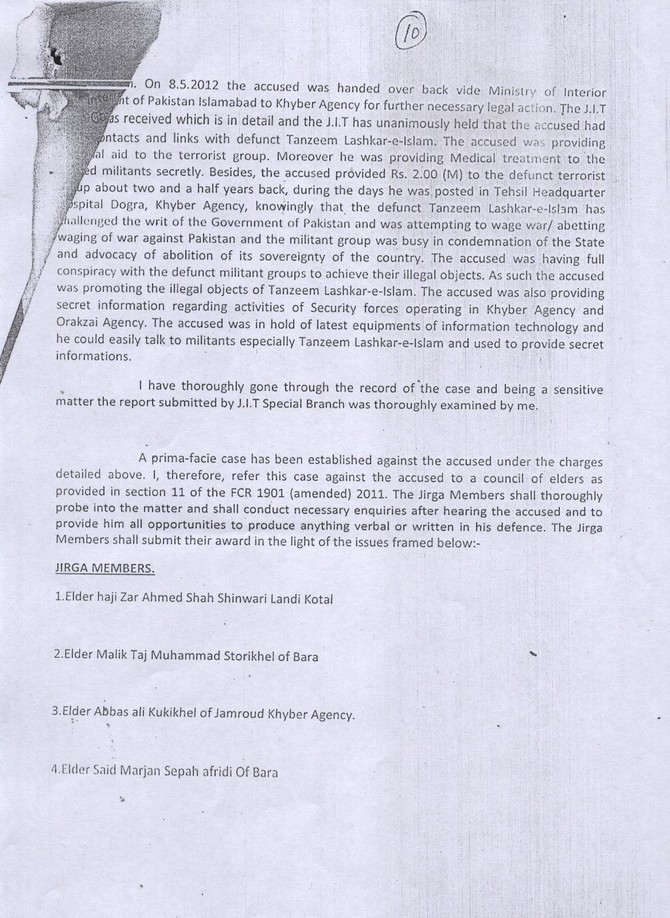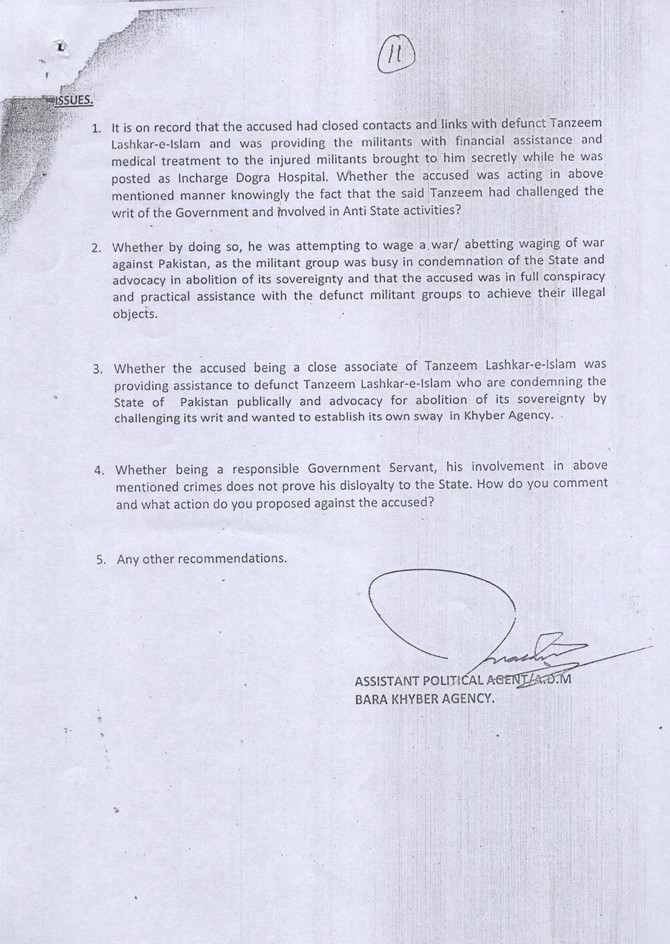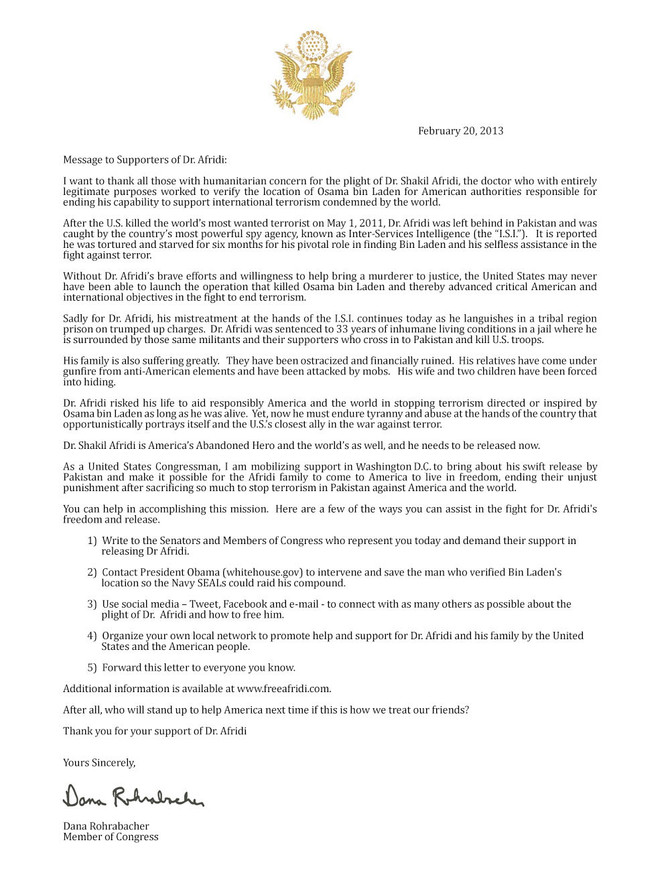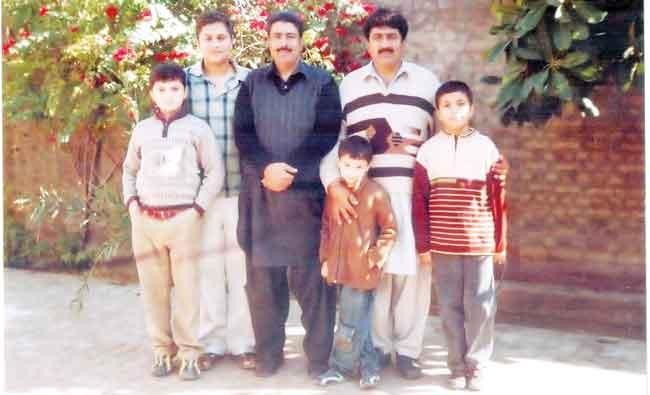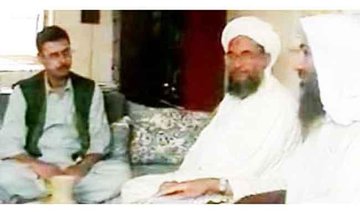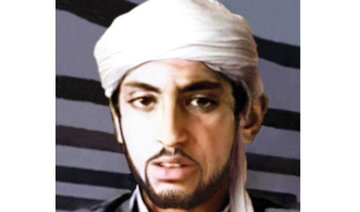ISLAMABAD: To Americans, he is the hero who helped them hunt down and kill Osama bin Laden. To Pakistanis, he is a villain who betrayed his country. On one thing, however, both countries are agreed; Dr Shakil Afridi will not be released from prison any time soon.
“There’s no deal on Afridi,” a US State Department official said. And a retired Pakistani intelligence officer who helped to investigate the raid in which bin Laden was killed said: “There’s no agreement, and there won’t be for the foreseeable future.”
Indeed, in the opinion of the intelligence officer, the jailed doctor is lucky to be alive. “Had he been convicted of conspiring against the state and aiding a foreign country, he would have been sentenced to death.”
Afridi, 54, helped the CIA to run a fake hepatitis B vaccination program aimed at confirming bin Laden’s presence in Abbottabad, Pakistan, by collecting DNA samples.
A few days after US special forces raided the bin Laden compound on May 2, 2011, and killed the Al-Qaeda leader, Afridi was arrested. A year later he was sentenced to 33 years in prison for colluding with terrorists.
The conviction was overturned on a technicality, and a retrial ordered, but in November 2013 Afridi was charged with murder over the death of a patient eight years before, and he has been prison ever since. The next hearing in his case will be on September 28.
The Afridi affair has contributed to a souring in relations between Washington and Islamabad, dating back to the presidency of Barack Obama. Legislation was introduced into the US Congress to award Afridi a Congressional Gold Medal and make him a naturalised US citizen, and in 2014 a Senate panel cut aid to Pakistan by $33 million – $1m for each year of the doctor’s sentence.
Last year, Donald Trump said he could have Afridi released “in two minutes.” Pakistan’s interior minister at the time, Chaudhry Nisar Ali Khan, replied that the US president “should learn to treat sovereign states with respect.”
Afridi, he said, “is a Pakistani citizen, and nobody else has the right to dictate to us his future. Trump’s perception and his comments about Pakistan are highly misplaced and unwarranted.”
And this week the US Embassy in Islamabad told Arab News: “We believe Dr Afridi has been unjustly imprisoned and we have clearly communicated our position to Pakistan on Dr Afridi’s case, both in public and in private. We continue to raise this issue at the highest levels during discussions with Pakistan’s leadership. Pakistan has assured us that Dr Afridi is being treated humanely and is in good health.”
* * *
Afridi was detained by Pakistani security officials 20 days after the bin Laden raid, when his phone number was discovered on a cell phone at the Al-Qaeda leader’s compound. He was interrogated first in Peshawar, then in Islamabad for nearly a year.
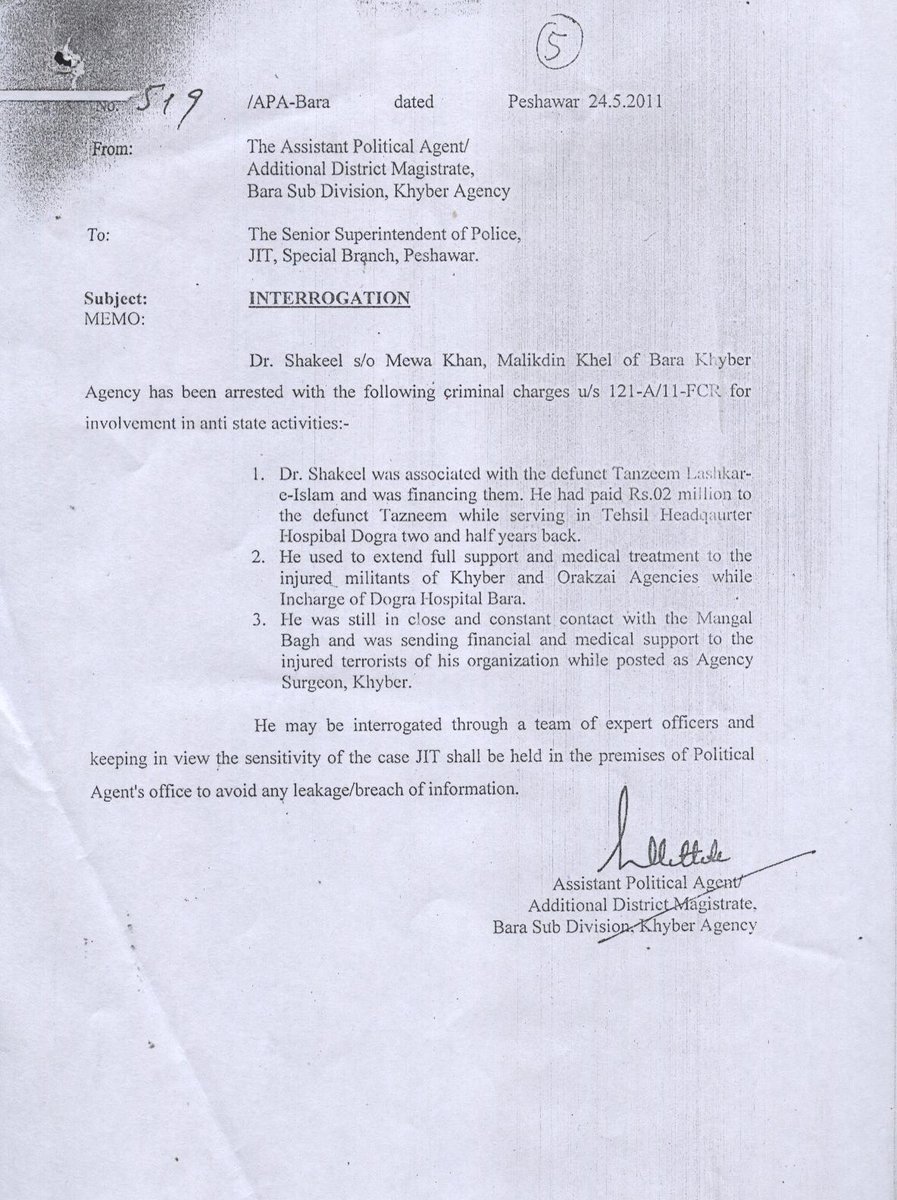
The revelations about the fake hepatitis B vaccinations had unintended consequences. Militants denounced a crucial and life-saving polio inoculation campaign as “American poison,” and killed health workers administering the medication. In September 2012, while in prison, Afridi asked that a press release be distributed saying that his vaccination campaign was not fake, and was unconnected with polio, in hopes of reassuring the public.
There is considerable doubt about whether his collection of DNA samples actually identified bin Laden, but CIA spies were alerted when one of Afridi’s nurses used the doctor’s phone to contact bin Laden’s courier, Abu Ahmad Alkuwaiti. The courier’s “voice was well known” to the US intelligence community, and the contact reinforced the CIA’s view that the compound held a “high priority individual.”
After the raid, Afridi’s female CIA handlers urged him several times to leave Pakistan. He held a valid US visa, but was reluctant to travel with his wife and three children through hostile tribal territory where he had been abducted by militants in 2008. In the end, he decided to stay because there was a problem with his wife’s visa. It was to prove his undoing.
On May 23, 2012, after 12 months in detention, Afridi was taken from Islamabad to Peshawar, sentenced to 33 years in prison and denied the legal right to a defense.
His lawyer, Qamar Nadeem, and Afridi’s brother were allowed to meet him in prison under tight monitoring, until an interview he gave to two reporters from Fox News was published on September 10, 2012. A few days later, everyone, including Afridi’s family and lawyers, were barred from meeting him. Reports emerged that he was on hunger strike.
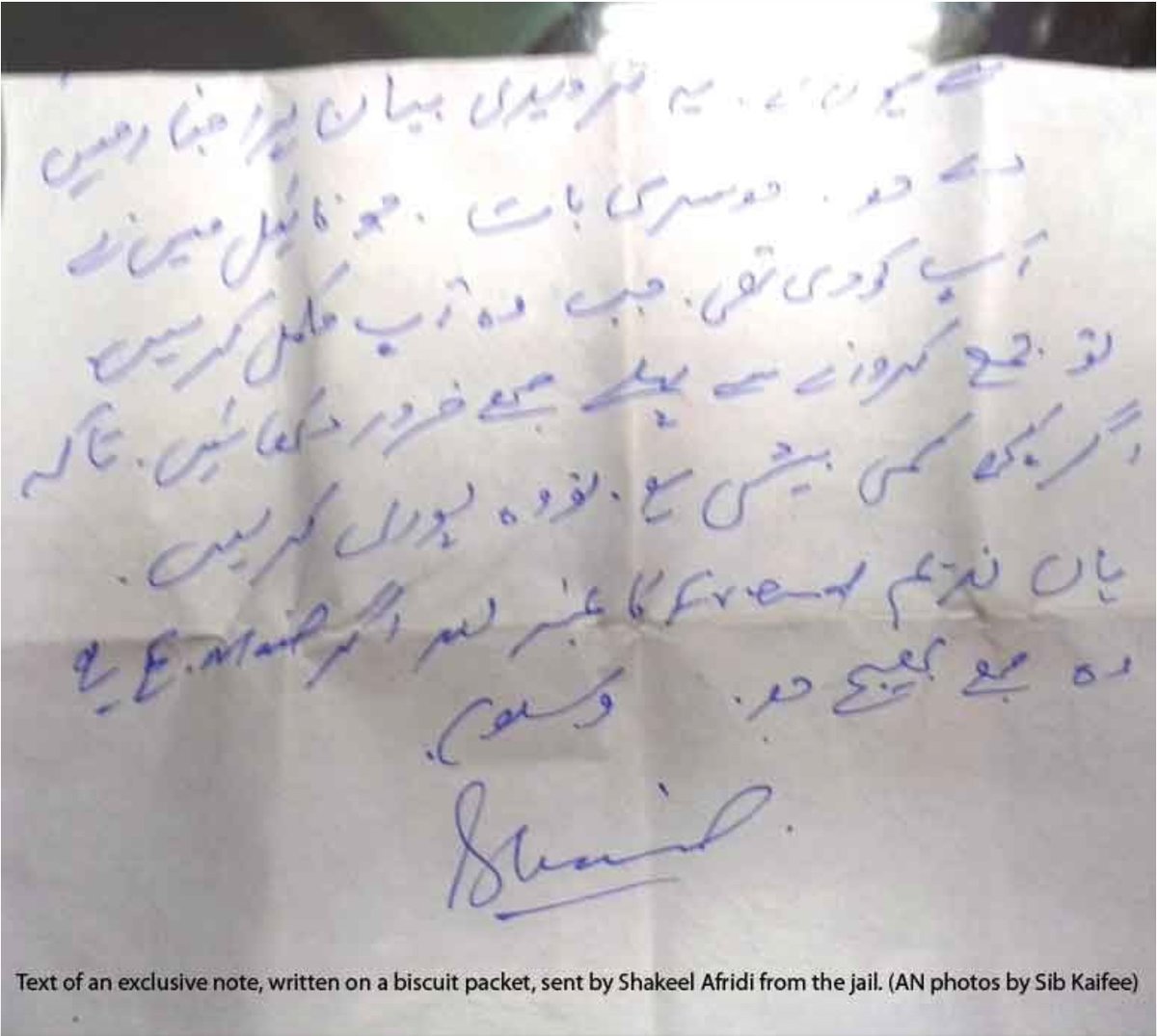
On November 20, 2013, a letter from Afridi written on a torn biscuit carton was smuggled out of prison. “My legal right to consult with my lawyers is being denied,” Afridi wrote. He decried his isolated confinement, and asked: “What sort of court and justice is this?” It is the last known correspondence from the doctor..

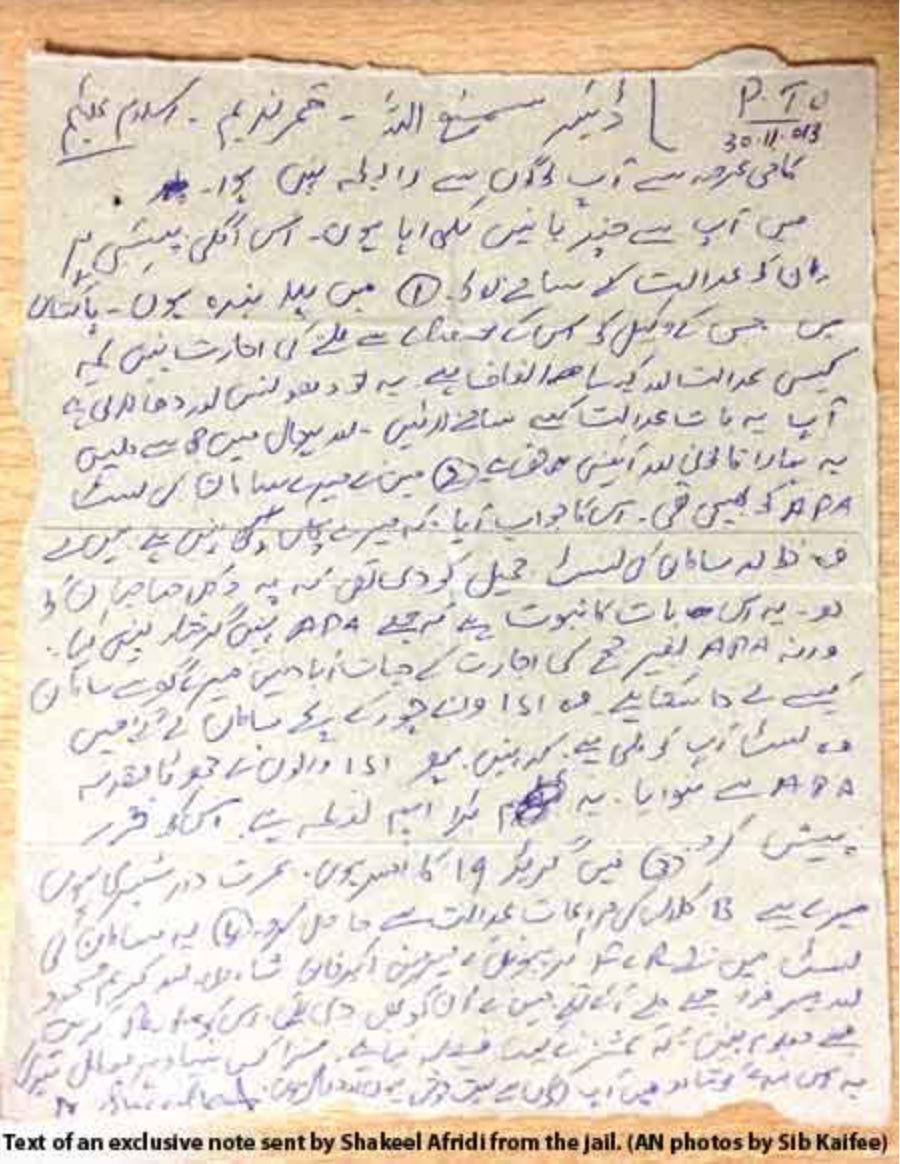
Afridi’s lawyer, Nadeem, last met his client in August 2012. “Since then we haven’t been able to meet him,” he said, despite a high court order reinstating access. “The State wanted to stop Afridi from speaking out. therefore a ban to meet him was put in effect. But things have become more relaxed, and his family are allowed to meet him every month or so.”
* * *
A year after Afridi was sentenced, there were reports of an agreement to exchange him for Dr Afia Siddiqui, a Pakistani-born, US-educated neurosurgeon serving 86 years in a maximum-security medical detention center in Fort Worth, Texas.
Siddiqui, 45, known in the US as “Lady Al-Qaeda,” was arrested in Afghanistan by American forces in July 2008, and convicted in 2010 on seven counts of attempted murder and assault of US military personnel.
Both the US and Pakistan denied the exchange reports. “Whether there was a deal previously, I don’t know,” said the State Department official. The Pakistani intelligence officer said a swap was “out of the question. She clearly was an Al-Qaeda associate. We won’t negotiate a terrorist for a traitor.”
Afridi’s lawyer, Nadeem, said Siddiqui’s representative contacted him to discuss a possible exchange. “I told her I needed to consult Afridi’s family members and my team before giving any response. We couldn’t move forward on it and the representative abandoned further efforts.”
Meanwhile Nadeem is working pro bono in the hope that someone will foot the mounting legal costs. The lawyer’s legal fees are not the only potential loss. Involvement in the Afridi case can be fatal. Nadeem’s colleague was murdered by the Taliban for defending Afridi, and the commissioner who ordered a retrial died in a gas explosion.
The only support Afridi’s case has received is from beyond Pakistan’s borders because “there is a lot of popular antipathy towards him, and the state and pro-state voices in the public space have painted him as a traitor,” said Mustafa Qadri, a human rights expert and founder of Equidem Research and Consulting. “This all makes it very difficult for civil society to actively support his case and his family,” who are in hiding, living in fear of public reprisal.
Nevertheless, Nadeem remains undeterred, despite four dozen inconclusive court hearings, and frustration at what he says are deliberate attempts by the state prosecutor to prolong the case by failing to appear for hearings.
The only remaining option that legal experts and officials in the Pakistani government point to is a full pardon from the Governor of Khyber Pakhtunkhwa Province or the President of Pakistan, both of which seem highly unlikely. Nadeem also wants the abolition of the tribal law under which Afridi was charged, and has not given up hope of a deal between the US and Pakistan. “If both the countries come to an agreement, Afridi will be released.”
The lawyer is also offering the media rights to Afridi’s life story, if Hollywood or foreign publishers are interested. “But nothing so far has happened.”




